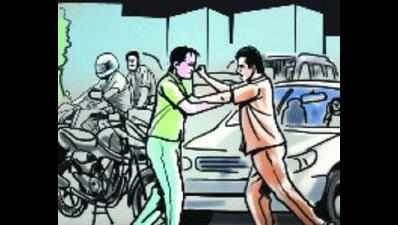- News
- City News
- delhi News
- Too many people are on the edge these days: Shrinks
Trending
This story is from March 26, 2016
Too many people are on the edge these days: Shrinks
The ruthless Vikaspuri murder could be a possible case of bottled-up rage being channelised through extreme violence, say an eminent sociologist and a well-known consultant psychiatrist.

Increasing cases of road rage are worrying psychiatrists. (Representative Image)
New Delhi: The ruthless Vikaspuri murder could be a possible case of bottled-up rage being channelised through extreme violence, say an eminent sociologist and a well-known consultant psychiatrist.
"The society's cultural control system has disintegrated. Some are indifferent to social norms and values and have developed a short fuse. They have a negative attitude towards society and anger towards the better-off.They seem to be unhappy with everything. Wherever they find an outlet to exhibit violence, they would demonstrate it," says sociologist Yogendra Singh.
Consultant psychiatrist Avdesh Sharma refers to "those who have a dark future and do not care much about their own life or the life of others."
"Too many people are on the edge these days. Their rage is possibly a pent-up fury against what they perceive to be an unfair system. When there's an incident of this nature, then such people find a face and a target," he says.
Singh says that rising social and economic inequities contribute to a negative state of mind among those unable to enjoy a slice of the good life. "There are a large number of young men and teenagers who are either unemployed because they don't have the qualification to be absorbed in today's market system or they do not take up employment because they are too maladjusted to work in any organisation," the sociologist says.
Sharma says that the absence of positive role models could also be a contributing factor. Even the criminal justice system fails to create deterrence because many such lawbreakers get away, he says.
The consultant psychiatrist points out that many such crimes happen in a state of inebriation or after substance abuse. "The ability to think rationally doesn't exist in such situations. No rational decisions are taken. The person who incites others to violence in such situations may or may not be the person who commits the crime," he says.
There's a general desensitisation to violence in the society, feels Sharma. "The role of the media, including that of social media, is crucial here. Violent videos are circulated on mobile phones. Kids too play violent computer games," he points out.
Singh believes that such behaviour needs to be controlled both by force and through rehabilitation. "The media today is driven by market, consumption patterns and profit. But it can also promote positive values in subtle ways to heal the rupture," says Singh, professor emeritus, JNU.
End of Article
FOLLOW US ON SOCIAL MEDIA










